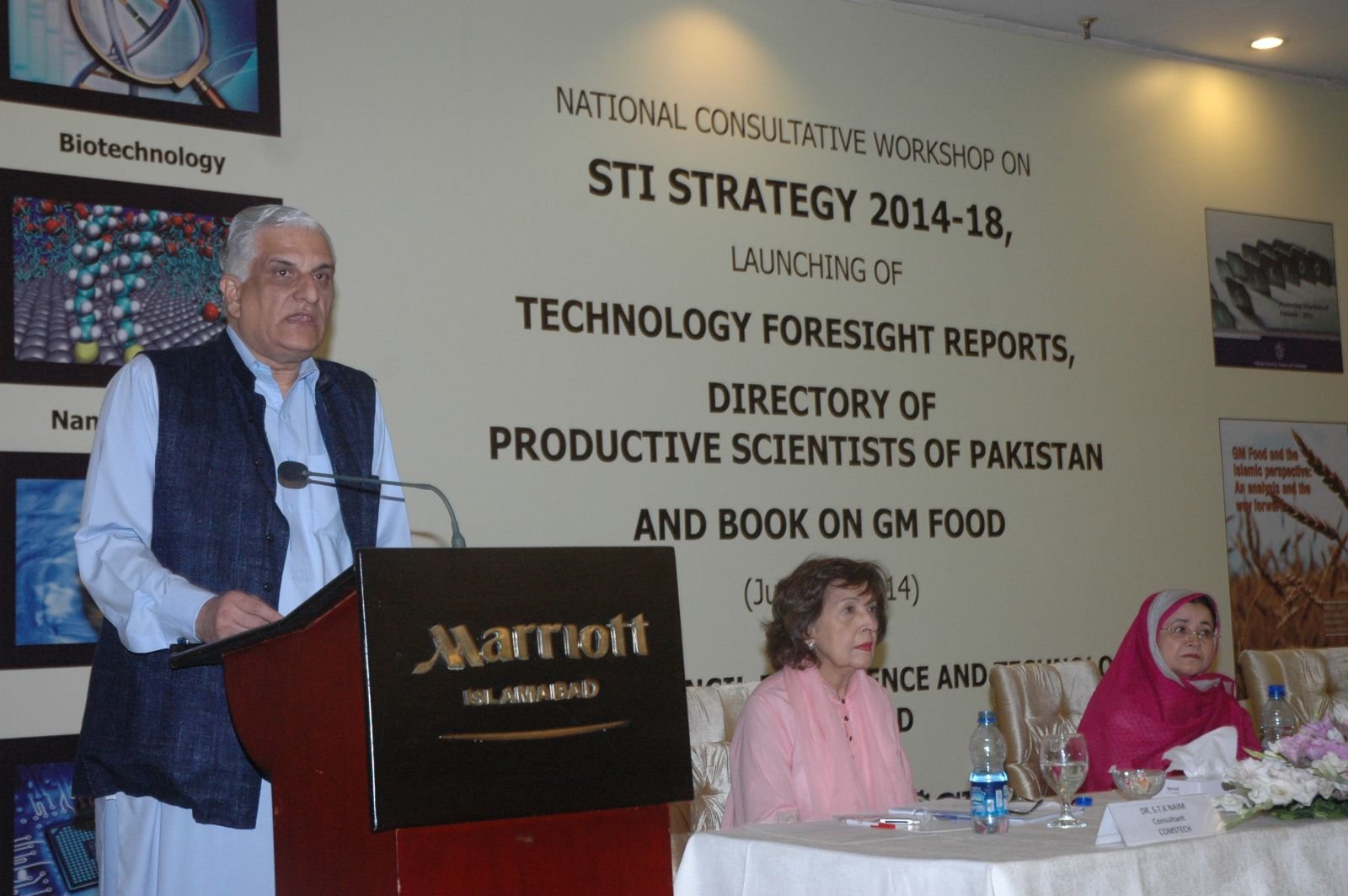STAFF REPORT ISB: Pakistan is a developing state which is vigorously taking various initiatives to set the track of science and technology on solid footings. However, there is still a dire and immediate need to secure development in this vital sector which can guarantee the socio-economic development of the country as has been done in the West.
“The new SandT strategy 2014-18 would aim at rapid development of human resources besides providing employment to youth,” said Federal Minister for Science and Technology Zahid Hamid while addressing the recently held one-day National Workshop on Stakeholders Consultation on Science and Technology Strategy 2014-2018 and launching of Technology Foresight Reports in Islamabad.
Giving the example of China, the minister said that the development of science and technology had proved to be one of the major contributing factors to Chinas spectacular economic growth over the past four decades. He stressed the need for establish strong linkages among the research institutes academia and entrepreneurs to reorient research and development towards market requirements leading to national socio-economic development.
Hamid lauded the initiative taken by Pakistan Council for Science and Technology (PCST) to conduct technology foresight exercises in the areas of agriculture, education, information communication technologies, environment, health, energy, industry, biotechnology, nanotechnology, water and electronics with the help of various think tanks.
Speaking at the occasion, Chairperson PCST Prof. Dr. Mudassir Asrar the organizer of the workshop, said the workshop has brought together scholars scientists researchers and teachers to share ideas and knowledge about various aspects of Science Technology and Innovation (STI) policy and sought their valuable suggestions for the implementation of the policy.
She expressed her sincere gratitude to the experts, especially the renowned Scientists, Rectors and Vice Chancellors who participated in the workshop from all over the country. She also thanked the co-organizer UNIDO, for playing their role in the successful organization of the workshop.
Tahir Maqsood, Additional Secretary MoST, emphasized the need to consult main stakeholders and receive their feedback on the document “Science, Technology and Innovation Strategy 2014-18” before finalizing it. He also highlighted the importance and necessity of Technology Foresight in SandT policy formulating, and national planning.
Many participants expressed concerns over the financial crunch in the SandT sector which is only 0.5 per cent of the GDP. They emphasized the need to enhance this allocation so that the STI policy could be implemented in true spirit.
HEC Chairman Dr. Mukhtar was of the view that only preparation of policy documents is not the solution of the dismal condition of SandT sector. It is the need of the hour to seriously put the heads together and implement the policy so that the trickledown effect to the poor masses could be observed.
Country Representative UNIDO, Esam Alqararh, thanked the participants and lauded the efforts of PCST for the development of SandT in the country.
Four expert panel reports based on Technology Foresight exercise and a book on Productive Scientists of Pakistan were launched on the occasion. The progress of outcomes of the Technology Foresight reports being undertaken by PCST was shared with the participants for their views and opinions. The issues dealing with the Technology Foresight disciplines were highlighted to seek the recommendations from the experts to resolve the same. Suggestions were also sought from the experts about the future Technology Foresight related activities in the county. Further, the ways and means for national and international collaboration were discussed.
Technology Foresight is neither about delivering probabilistic predictions of the future technologies (Technology Forecasting) nor is about anticipating the impacts of future technologies in todays society (Forecasting Assessment), rather Technology Foresight is a systematic process to visualize science, technology, industry, economy and society in the long run.
